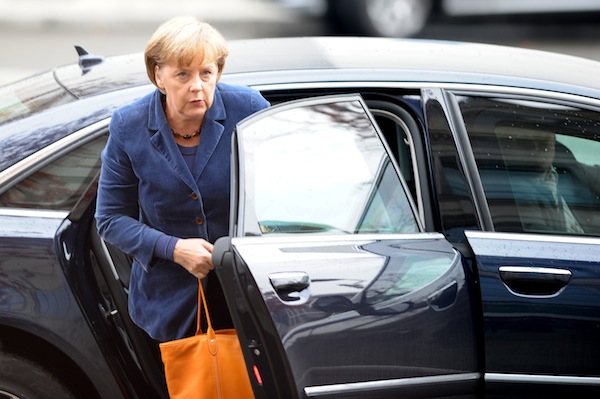Audits of the last year are a blessing to journalists: a postmortem of the gainers and losers of 2012 are a useful means of covering for the fact that there’s next to nothing happening on the political front, nobody’s at work and the only actual news is hinged on that annual festival of recrimination, the New Year’s Honours List.
But the lists are good for sparking off debate, at least among the politically interested, and one of them, the Telegraph’s summary of the top five political women of the last year had at least the merit of getting me worked up. To cut to the chase, the women who matter by this reckoning are Theresa May, Harriet Harman – fair enough – Hillary Clinton, fine, Nadine Dorries (yes, yes) and Louise Mensch. That’s right, she who lost a parliamentary seat for the Conservatives, she who cut her parliamentary career short in order to decamp to the US, she who single-handedly discredited the entire notion of the A-list.
Actually, this last, giving the A-list a bad name was arguably something of a service to politics. The notion of an elite squad of women and high-fliers who would be parachuted into safe seats in order to make the Tory Party look more like the leadership would like it to look was the triumph of Notting Hill Toryism, an affront to the notion of grassroots politics and to the entire concept of localism.
The idea that Louise Bagshawe/Mensch was, as an easy on the eye novelist, better able to represent her constituency than a local stalwart, was in this, as in other cases, a concession to the needs of television, not of democracy. Mind you, it’s obviously not just the Tories who do this sort of thing; Labour’s selection for Denis MacShane’s successor was an outrageous top-down manipulation of the process in favour of women candidates. So possibly on negative grounds, Mensch may have usefully proved a point.
But there is outstanding female talent out there. Of all the new intake, Stella Creasy, Labour and Co-op MP for Walthamstow, is an interesting instance of a very new MP who has made her mark by focusing, Frank Field-style, on the unglamorous grassroots issues. In her case, it’s the issue of loan sharks, the contemporary usury that cripples some 3 million of the very poorest borrowers. Her 10-minute bill, attempting to regulate the legal home loan market, was a fine instance of how single-mindedness can pay off, and how the needs of debtors at the bottom of the pile can, with persistence, be brought to the attention of a government which is focused on the needs of middle class borrowers. Fair play to her.
Another woman who has undeniably left her mark is Andrea Leadsom, who, as a member of the Commons Treasury Committee, helped articulate the grievances of the entire electorate. I can’t say I quite agree that the Bank of England, let alone the bankers, were as thoroughly taken to task by the committee as they deserved, but she did quite as good a job as the rest. And she usefully intervened in a toxic row between the Chancellor and Shadow Chancellor by calling on George Osborne to apologise to Ed Balls for suggesting he was involved in the Libor scandal It’s all forgotten now, but it was an instance of fairmindedness that should get credit.
And what about Margaret Hodge? Once, as leader of Islington Council, she had a problematic record when it came to the management of children’s homes in the borough, but as chair of the Commons Public Accounts Committee, she’s had a ball. It is in fact, hard to get the chairmanship of the PAC wrong: Edward Leigh, similarly, had a fine time of it, bringing to public attention the sheer scale of misuse of public money, but even given that she has perhaps the easiest job in politics in calling attention to egregious, large scale abuses, she has done it with tremendous style. She’s articulate, personable and humorous and her hounding of Google and Starbucks for tax avoidance over and above the needs of shareholders was a pleasurable spectacle.
As for the international scene, the politician, let alone, the female politician, who has left her mark most strikingly on Europe is the least glamorous woman in politics, the German Chancellor.
It’s hard to imagine a younger Angela Merkel being A-listed by the Tories, being more or less the polar opposite of poor Louise Mensh, but in her stolid fashion, she has held the eurozone together, committed Germany to underwriting the liabilities of European account holders, and arguably rescued the entire European project. It’s hard to see any of her peers being up to the job, but by dint of that Lutheran pastor’s daughter integrity she has a moral credibility for which the only near parallel in British politics was Gordon Brown – before his premiership, obviously. There will be quite a number of Brits who will not necessarily thank her for ensuring that Greece did not in fact go under and the eurozone did hold but it was an achievement which will shape the European Union of the next decade.
And perhaps her greatest achievement is that no-one would patronise her by praising her as an awfully good woman politician. She’s a formidable politician, finis.







Comments